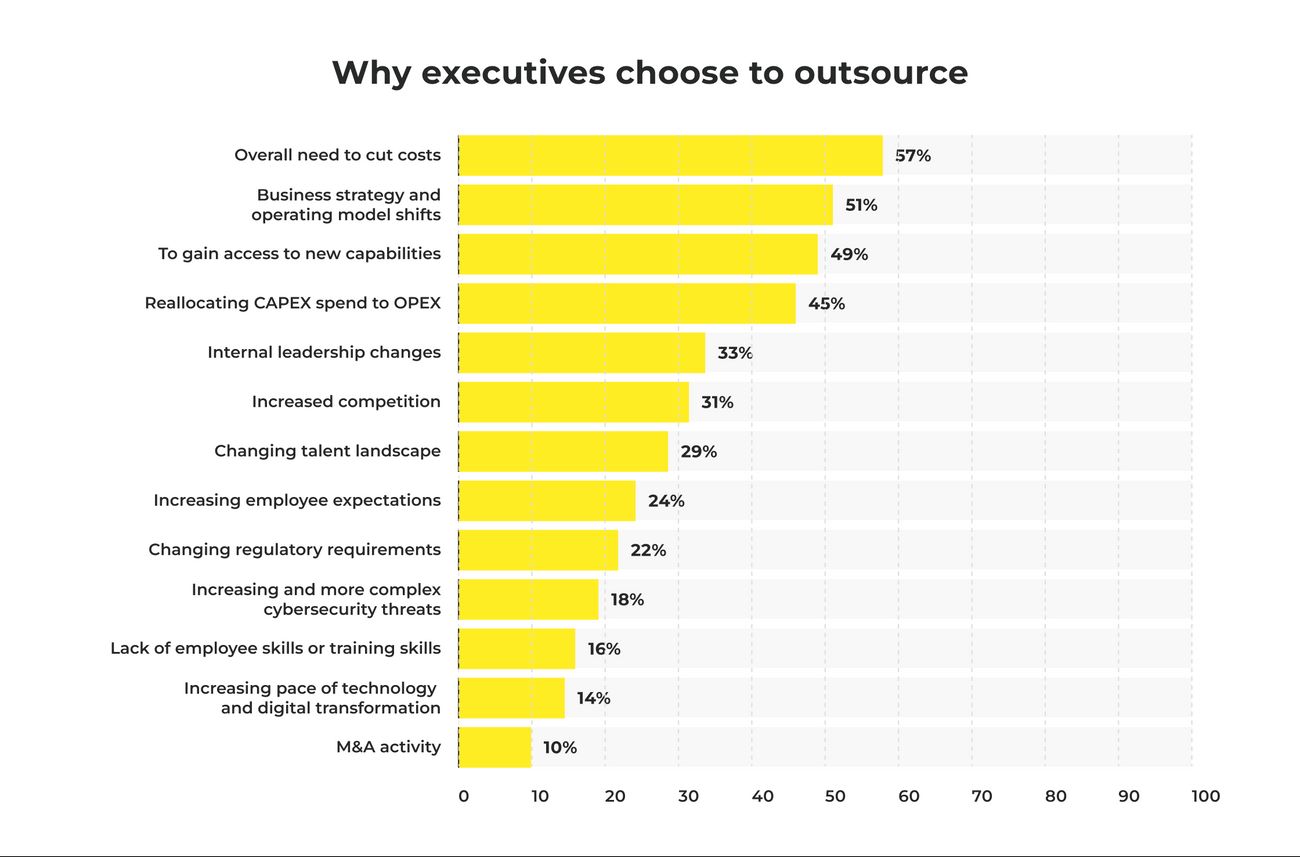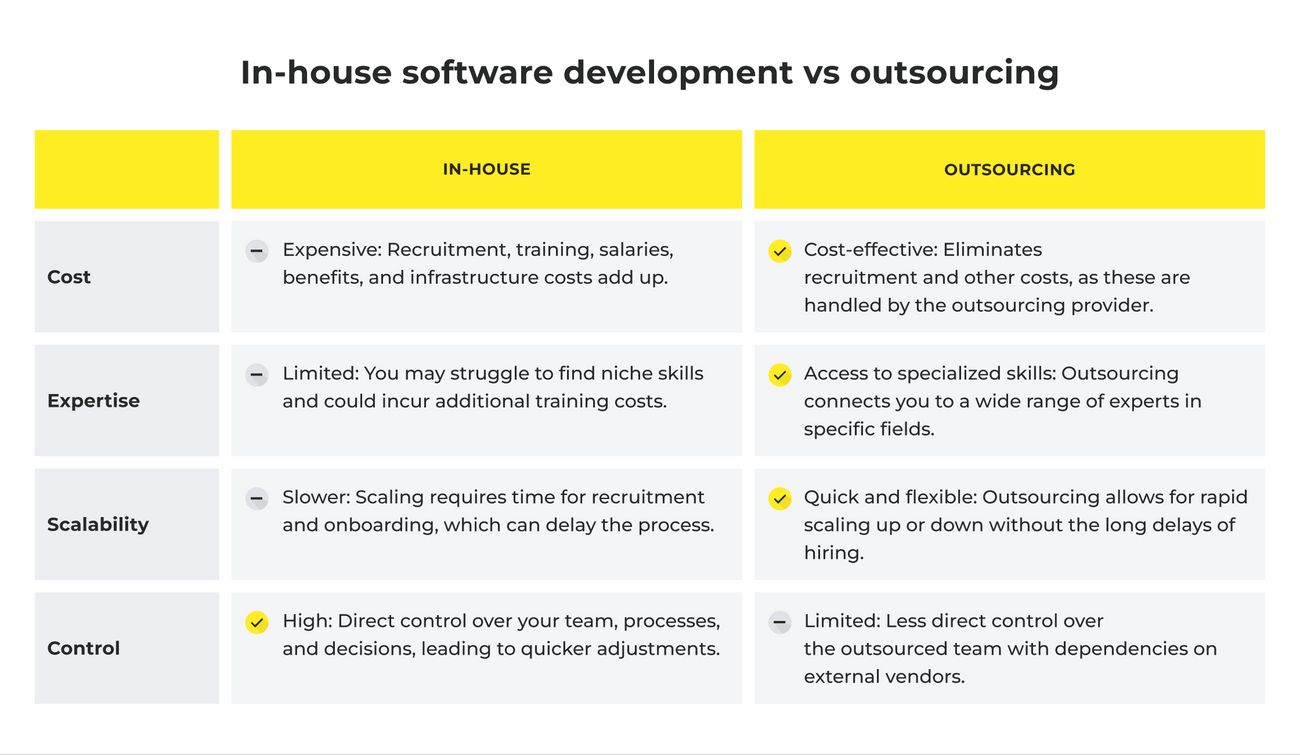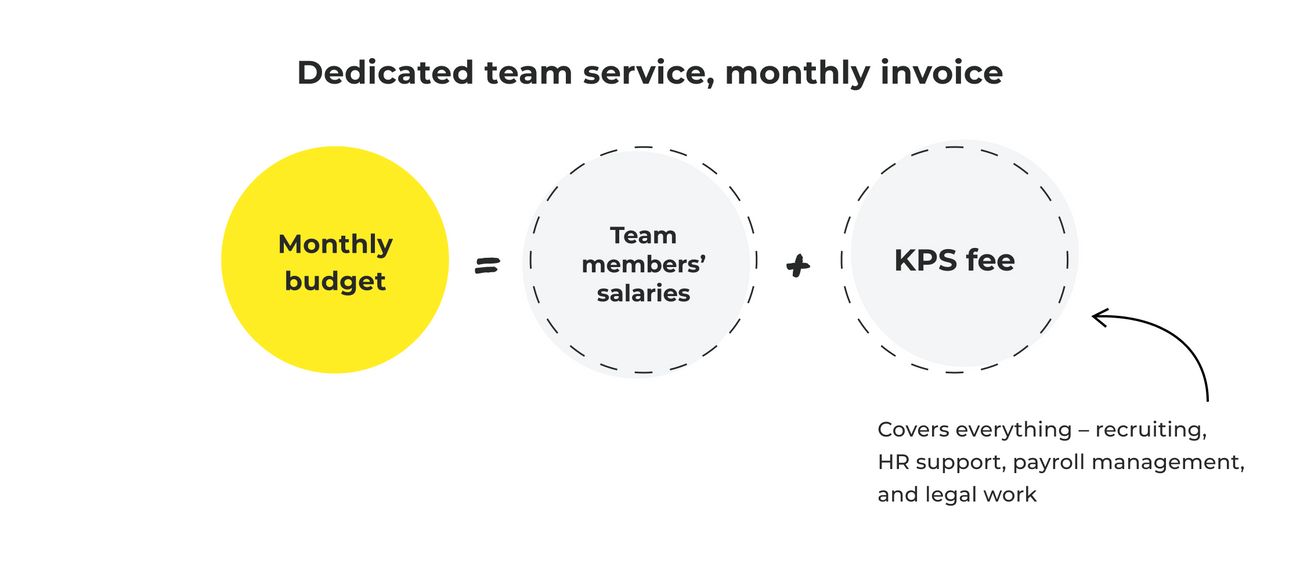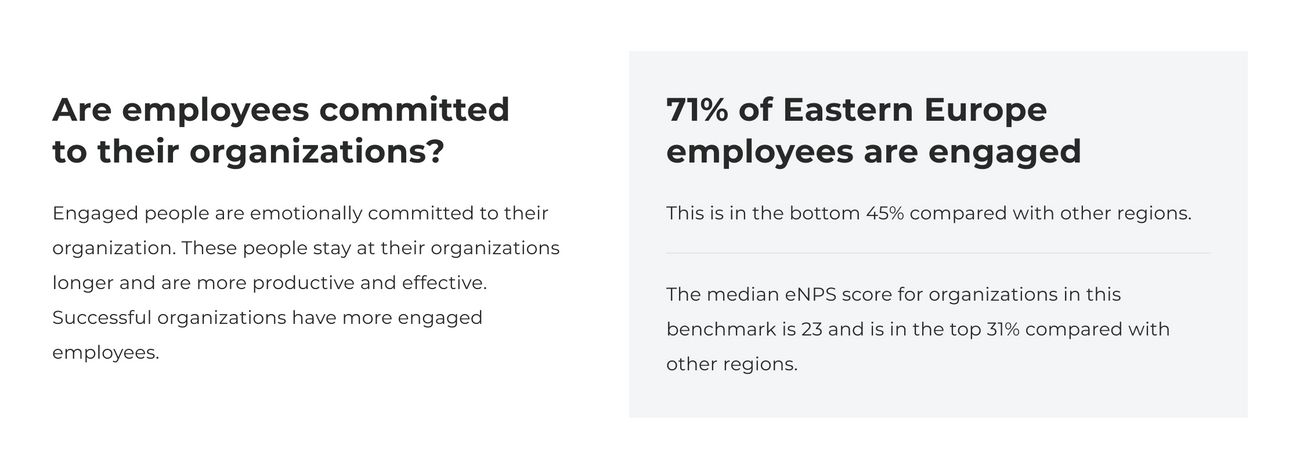In 2021, the EU set an ambitious goal for its Digital Decade: 20 million ICT specialists by 2030. That sounds great, but let’s be real — despite all the efforts to train software engineers and grow a local talent pool, businesses will probably still turn to outsourcing. Why? Hiring locally would cost them a decent chunk of change nevertheless.
The in-house software development vs outsourcing debate isn’t off the table, that’s for sure. After the big tech layoffs in 2023, hiring in-house development teams in Western Europe has become slightly easier. However, affordable and reliable outsourcing hubs like Ukraine, Georgia, Pakistan, and more are still the top choices for many businesses.
Of course, outsourcing isn’t all the same and you can always roll the dice with freelancers and hope for the best. At the same time, you can team up with an agency for a smoother, more reliable process. There’s a lot to consider, but we’re here to help you figure it out.
With that said, let’s start by comparing in-house vs outsourcing software development and then move on to some common fears about outsourcing.
In-house software development vs outsourcing: when it’s better to build an internal team
Just to be clear, we’re not here to tell you which hiring model to pick. And honestly, no one can tell you that. What we can do is walk you through both, in-house vs outsource software development, and give some advice on which might be a better fit for different scenarios.
So when does having an in-house development team make sense? Shortly, if you have the budget and can manage the team, you’re good to go.
If you can afford the internal hiring campaign, why not?
Having an in-house development team that is deeply familiar with your company’s operations is invaluable. But …
But only if you have money to cover the whole process, from sourcing to hiring and onboarding. And that’s quite a budget you’ll have to invest. Along with the developers’ salaries, you will have to pay taxes, benefits, and more. Don’t forget that the in-house development team needs a place to work, and even if they’re remote, they still need hardware and other tools to get the job done.
When you can manage the team, do it
Another thing to understand when setting up an in-house development team is whether you can manage it. And it doesn’t mean checking in now and then. You’ll need to define the scope of work, create a project roadmap with clear milestones, figure out what resources you’ll need, run regular meetings, identify potential risks, and come up with ways to handle them. It’s a lot to juggle, especially when you don’t have much experience.
If someone reliable knows the ropes in your team, great. But if everything falls on your shoulders, it might be better to team up with professionals.
And one more thing: the budget and project management skills come together. If the management skills are missing, your in-house software development team probably won’t deliver as you expect.
When it comes to outsourcing software development, you don’t have to worry about any of this. Outsourcing vendors provide experienced talent at a reasonable cost, plus a Project Manager to keep everything on track.
For example, you could choose managed product outsourcing where the provider handles everything from start to finish. It’s a great option if you lack an in-house engineering team or need help with a one-off project. In case your business is already running, managed service is ideal for dealing with routine tasks like quality assurance or database management.
And if you need more hands on the deck, you can always go for a dedicated development team that works just for you, or staff augmentation, where you bring in individual specialists to fill any skill gaps.
But is everything so smooth with software development outsourcing? Let’s get clear if it’s the right option for you compared to in-house development.
In-house development vs outsourcing: when outsourcing wins
Given the angle of this article, you might think that we’re about to present outsourcing as a “magic pill” that guarantees success when you have some budget constraints or can’t manage the software development project alone.
We won’t, sorry.
However, this hiring model does have some benefits. Here they are.
Cost savings
According to the Deloitte Global Outsourcing Survey, 57% of respondents cite cost reduction as the main reason for outsourcing software development.

Software development outsourcing can help businesses avoid the expenses associated with hiring, training, and managing employees. In most cases, it also provides cost savings in terms of equipment and infrastructure, as service providers usually cover their own tools and tech.
But we said “in most cases” because there’s always a chance you come across a vendor that fails to provide all that. So, if you want to quickly assemble a software development team that’s already skilled for the tasks you have in mind, and don’t deal with any overheads, look for a reliable provider.
Take KPS, for example. Building a dedicated software development team with us can save you up to 70% on team costs compared to hiring in Western Europe and the USA. Now that’s the cost reduction you’re looking for.
Access to a larger talent pool
Another compelling reason for outsourcing software development is access to niche expertise. It’s a great opportunity to engage the global talent, not just the folks in your backyard. So in the end, you get specialized skills and knowledge that might be hard or expensive to find in-house.
For example, if you need developers proficient in a niche programming language like Rust or Go, outsourcing makes it easy to connect with such specialists. Since you’re not limited to your local job market, you can source talent from any country, including those where labor costs are more affordable. To give you an idea, a Go engineer in the USA makes about $122,000 a year, which is around $10,167 a month. But in Ukraine, the same specialist earns around $3,500 a month, which is about $42,000 annually. That’s a huge difference, right?
Effortless scalability
One of the biggest perks of outsourcing over in-house software development is scalability. And in this case, it’s not just a buzzword used to sound smart. It is an ability to quickly and easily scale operations up or down as needed, without the need to hire or lay off employees.
Let’s say you need extra hands to speed up the software development process. In this case, you can outsource tech hiring. Here’s how it works. You share your requirements and the provider shortlists candidates for you to approve. Alternatively, you can go with managed product outsourcing to handle the entire product development or managed service to outsource specific tasks and avoid overloading your internal team.
Instead of getting stuck in that long and tiring hiring process, all you need to do is describe your tech requirements and the outsourcing vendor will do the job for you.
Risk mitigation
When you outsource to a third-party vendor, you pass some of the risks associated with software development to them. For instance, you’re building a software app with your in-house development team. Suddenly, technical issues pop up, delaying the project. In this scenario, you’re the one who’s responsible for fixing everything and managing those risks. But if you work with an outsourced software development team, the service provider takes that responsibility.
Trusted outsourcing software development companies usually assign a project manager or a solution architect who assesses all the risks associated with product development upfront to mitigate them throughout the project.
Having gone through the benefits of IT outsourcing, you might have forgotten that we’re also talking about in-house development teams here. So, let’s bring it all together. Here is a quick chart to highlight the core differences between in-house vs outsourcing software development.

To each their own, so choose what fits your business needs more. When it comes to outsourcing, it’s definitely appealing. However, many businesses still aren’t eager to hand their software development to an “unknown” third party.
So let’s address the main fears about outsourcing software development and show how we at KPS work with our clients to save them from unnecessary headaches.
Common fears associated with software development outsourcing
What if they mess up? What if things go wrong? What if it costs more than promised? These “what if” questions are likely to pop up when you are about to outsource your software development project to complete strangers, aka an offshore team. KPS are no strangers to anyone. That’s why we are going to bust the most common fears associated with outsourcing and put your mind at ease.
Fear 1. Outsourcing vendors don’t care about my business.
Unlike most offshore software development teams that might work on several projects simultaneously, we put all our focus on you. With KPS, you get a team of software developers fully committed to your goals. Your product is our priority, and we treat it like our own. When you succeed, we succeed.
Fear 2. Outsourcing has hidden costs, this will hurt my budget.
It’s possible with some software development vendors, but not with us. Kulprosvet is 100% transparent. You’ll get a clear breakdown of your expenses, so you know exactly where your money goes. For example, when you need to outsource tech hiring, your monthly budget includes the team members’ salary plus a service fee. Not a penny more.

If you’re looking for end-to-end engagement, like with the managed product approach, our team can take charge. We will work through your requirements, prioritize them, and create a clear strategy. From there, we will provide a solution blueprint and detailed assessment that breaks down all the costs involved.
Fear 3. I’ll lose control over the software development project.
It happens to even the best of us. For instance, if you have too many tasks on your plate, deadlines could slip by unnoticed, or priorities could shift and mess up your whole plan. But that won’t happen with Kultprosvet. When we deal with end-to-end development, the project is managed by a dedicated project manager. Still, there are regular weekly reports and sprint demos. This way, the client has a say in their product and tweaks the backlog if needed. Our PM, on the other hand, makes sure these tweaks don’t turn into scope creep.
Fear 4. I’m afraid outsourcing will hurt my business due to cultural differences or lack of communication.
Many organizations worry about cultural gaps and communication barriers when outsourcing software development. These issues might result in project setbacks, misunderstandings, and a lack of cohesion within the team. However, with the right partner like Kultprosvet, you won’t have to deal with these challenges.
We help you hire software programmers who are not only experts in your specific technology stack and are fluent in English but who also committed to what they do. According to the research, 71% of Eastern Europe employees tend to be very engaged and committed to the organizations they work for, which is 45% higher compared with other regions. This number, in turn, means higher productivity and better quality of work, so you can rest assured your dedicated developers are truly dedicated.

In-house vs outsourcing software development: What to pick then?
It’s your project, so you are the one who knows best which path to take – in-house development vs outsourcing. But in general, if you’re working on long-term projects that need to align with your company’s goals, building an in-house software development team is probably your best bet. You get the control, the commitment, and the pizza parties.
But if you’re looking to scale quickly, skip the long hiring process, and still get the job done without going over budget, an outsourced development team is your go-to. For the best results, consider outsourcing to Ukraine and partnering with KPS – expert support without the fuss, just results.
Still have questions about in-house development vs outsourcing?
I have a tight budget and even tighter deadlines. What should I opt for – in-house software development vs outsourcing?
How do I handle time zone differences with an outsourced software development team?

